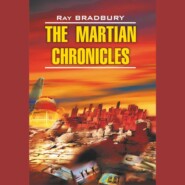По всем вопросам обращайтесь на: info@litportal.ru
(©) 2003-2024.
✖
Now and Forever
Автор
Год написания книги
2019
Настройки чтения
Размер шрифта
Высота строк
Поля
She laughed quietly. ‘How can that be? It sounds so like those unhealthy romances written by healthy housewives. What made you choose Summerton? Was it our name?’
‘I saw a postcard someone must have picked up on their way through.’
‘Oh, that would have been years ago.’
‘It looked like a nice town – a friendly spot for tourists looking for a place to relax, enjoy the desert air. But then, I looked for it on the map. And you know what? It’s not on any map I could find.’
‘Well, the train doesn’t stop here.’
‘It didn’t stop today,’ he admitted. ‘Only two things got off: me and my suitcase.’
‘You travel lightly.’
‘I’m just here overnight. When the next train runs through, not stopping, I’ll grab on.’
‘No,’ she said softly. ‘That’s not how it’s supposed to be.’
‘I’ve got to go home and finish my story,’ he insisted.
‘Ah, yes,’ she said. ‘And what will you say about this town that no one can find?’
A cloud crossed the sky and the dining room windows darkened, and a shadow fell across his face. There were two truths to tell, but he could tell only one.
‘That it’s a lovely town,’ he said, lamely. ‘The kind that doesn’t exist anymore. That people should remember and celebrate. But how did you know I was coming?’
‘I woke at dawn,’ she said. ‘I heard your train from a long way off. By noon the train was just beyond the mountains, and I heard its whistle.’
‘And did you expect someone named Cardiff?’
‘Cardiff?’ she wondered. ‘There was a giant, once—’
‘In all the newspapers. A fraud.’
‘And,’ she said. ‘Are you a fraud?’
He could not meet her gaze.
NINE (#ulink_942ea527-2ad9-5ccf-8506-af48a738185f)
When he looked up, Nef’s chair was empty. The other diners, too, had all left the table, gone back to their rocking chairs or, perhaps, to summer afternoon naps.
‘Lord,’ he murmured. ‘That woman, young, but how young? Old, but how old?’
Suddenly Elias Culpepper touched his elbow.
‘You want a real tour of our town? Claude needs to deliver some more fresh-baked bread. On your feet!’
The wagon was loaded with a redolent harvest. The warm loaves had been neatly stacked row on row within the oven-smelling wagon, thirty or forty loaves in all, with names lettered on the wax-paper wrappings. Beside these were waxed boxes of muffins and cakes, carefully tied with string.
Cardiff took three immense inhalations and almost fell with the overconsumption.
Culpepper handed him a small packet and a knife.
‘What’s this?’ said Cardiff.
‘You won’t be a block away before the bread overcomes you. This is a butter knife. This here is a full loaf. Don’t bring it back.’
‘It’ll ruin my supper.’
‘No. Enhance. Summer outside. Summer inside.’
He handed over a pad with names and addresses.
‘Just in case,’ said Culpepper.
‘You’re sending me out on my own? How do I know where to go?’
‘Don’t you worry. Claude knows the way. Never got lost yet. Right, Claude?’
Claude looked back, neither amused nor serious, just ready.
‘Just go easy on the reins. Claude’s got his own system. You just tag along. It’s the only way to see the town without any jabber from me. Giddap.’
Cardiff jumped aboard. Claude tugged, the wagon lurched forward.
‘Hell.’ He fumbled with the notebook, scanning the names and addresses. ‘What’s the first stop?’
‘Git!’
The bread wagon drifted away, warming the air with the heady scents of yeast and grain.
Claude trotted as if he could hardly wait to be right.
TEN (#ulink_eb2d361f-7198-56d1-ae17-ee915057ae1f)
Claude jogged at a goodly pace for two blocks and turned sweetly to the right.
His eyes twitched toward a front yard mailbox: Abercrombie.
Cardiff checked his list.
Abercrombie!
‘Damn!’
He jumped from the wagon, loaf in hand, when a woman’s voice called, ‘Thank you, Claude.’
A woman of some forty years stood at the gate to take the bread. ‘You, too, of course,’ she said. ‘Mister …?’

















